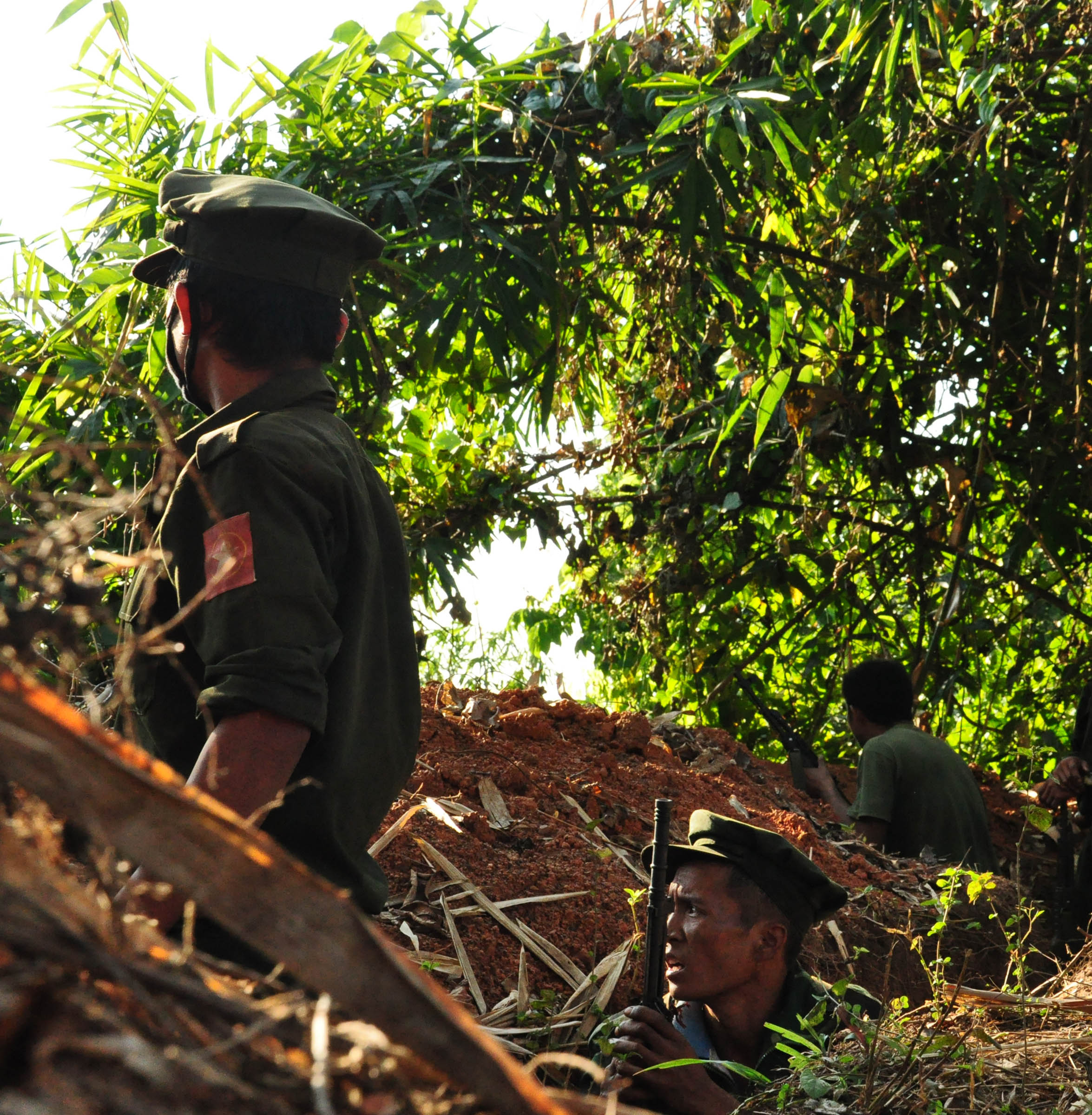Burma Army Attacks “Throw Doubt” on Peace Process

Burma Army offensives in Kachin State are undermining the peace process, an ethnic women’s organisation has claimed.
The Kachin Women’s Association Thailand (KWAT) expressed concern of the recent escalation in Burma Army attacks in Kachin and Shan States, which had led to “fresh displacement and suffering” of local civilians in a statement released today.
“These systematic operations to seize control of key trade routes and economic zones along the China-Burma border throw strong doubt on the government’s sincerity towards the peace process,” KWAT said.
Jessica Nhkum, Joint General Secretary of KWAT, in a interview with Karen News said that Burma Army abuses threatened the country’s peace talks. “We cannot be confident in the peace talks while the Army is still attacking our Kachin people and perpetrating human rights abuses,” she said.
The Kachin State conflict, which first erupted in June 2011 when a Burma Army offensive against the Kachin Independence Organisation (KIO) led to the collapse of a 17-year ceasefire, has so far displaced more than 100,000 civilians in Kachin State and neighboring Shan State. Far from a small conflict, the Kachin war has seen the use of government helicopter gunships, heavy artillery and jet fighters.
KWAT in its statement alleged that the Burma Army used the nationwide census as a pretext for large scale offensive in Mansi Township in April, a strategic border crossing straddling China and Burma.
“1,500 Burmese troops were sent into the area before the attacks, on the pretence of giving security for the census, but instead launching an unprovoked attack against the Kachin Independence Army on April 10th. Heavy shelling of Lagat Yang IDP camp and nearby villages caused over 3,000 people to flee. The Burmese Army has now seized the Bang Kham border post and established control over this area,” KWAT said.
The Burma Army is currently engaged in an offensive in Mong Baw, northern Shan State, to wrest control of the strategically important Lashio-Muse highway, a vital trade artery. KWAT said that in late April, over 1,000 Burma Army troops were deployed to Mong Baw, and on May 3, mortar shells were fired into nearby villages, causing “about 1,000 villagers to flee their homes.” Burma Army jet fighters were also used, KWAT said.
The Burma Army was committing human rights abuses in conflict areas, including sexual violence and torture. On April 10, a 17 year-old schoolgirl was gang-raped by soldiers from Light Infantry Battalion 320 in Mansi Township. While on May 17, a 15 year-old girl was raped by a Burma Army soldier near Kutkai. KWAT said it had documented the rape of more than 70 women and young girls by the Burma Army in the last three year; half of those raped were killed. KWAT condemned the Burma Army abuses. “We deplore these continuing incidents of rape, and urge that the issue of military sexual violence be addressed as a matter of priority during peace negotiations.”
Ms Nhkum maintained that foreign governments had a responsibility to invest in Burma responsibly and told Karen News that Burma’s ongoing conflicts and ‘land thefts’ had to be figured into the investment equation. “In terms of the international community, every foreign government has their own interests – they should stop investing with the Burma government while there is still civil war and innocent people in Kachin State are suffering. They [foreign governments] do not like to see the problems in Burma, just the economic opportunities.”
The KWAT statement coincides with a report released by the human rights watchdog, Fortify Rights, which said it had documented dozens of cases of Burma military perpetrated torture and in some cases killings, which amounted to “war crimes” and “crimes against humanity”
The Fortify Rights report concluded that the use of torture by the Burma Army was systemic and had the support of President U Thein Sein’s government.
“The similarities in incidents of torture documented in disparate locations during a three-year period indicate that torture was carried out as part of a widespread and systematic attack against the civilian population with the backing of the state. Civilians were systematically tortured in rural villages, areas of armed conflict, government facilities, and places of detention.”




